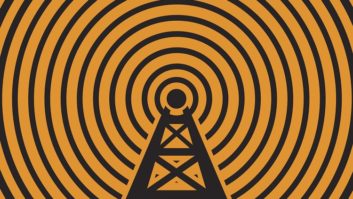The author is membership program director of the National Federation of Community Broadcasters. NFCB commentaries are featured regularly at www.radioworld.com.
Noncommercial media’s most recognized name has had a turbulent November, and the fallout has been a wake up call. It is time to further discuss community radio’s need to address its own issues.
National Public Radio, the name the larger public knows when the words “noncommercial broadcaster” or “public radio” comes to mind, has been embroiled in the all-too-common scandal of sexual harassment that has emerged in 2017.
If you have not tracked the news, NPR executive Michael Oreskes resigned Nov. 1 amid sexual harassment accusations that came to light. Since then, more harassment allegations have been lodged against at least one other senior staffer, David Sweeney. NPR CEO Jarl Mohn announced Nov. 7 that he was taking at least a one month long medical leave, stemming from increased blood pressure in the wake of controversy. On Nov. 15, citing the demands of the Oreskes investigation, NPR board Chair Roger LaMay declined a third term.
The scope of what’s happening is disheartening. It should also worry all of community media. Because NPR is so synonymous with nonprofit radio, you don’t have to be or even care for NPR to be impacted. When the news is good, such as NPR doing interesting reporting that draws audiences, we benefit. When the news is bad as it is now, community radio is also diminished. At the end of the day, the listener lumps us all together, so awareness of what is going on is critical.
The awful news is not the first in noncommercial media. Pacifica Radio saw litigation in 2007 over sexual harassment. Beyond lawsuits though, the damage done to the lives of those who endure such incidents, the stations that see the hard work of so many dashed by a few, and the trust lost among donors who put faith in organizations are all far more crucial than any court battle.

Social media-sparked consciousness of sexual assault and harassment brought on by #MeToo and other efforts is pushing us to weigh our institutional actions in a more measured way. Stations would do well to think through how each contends with potential problems before leadership.
How should a community radio station respond to the news in proactive and institutional ways? First and foremost, a community radio station’s volunteers and staff must remember they’re not exceptional. Business, nonprofit, conservative, liberal, moderate and every other kind of organization in between has contended with sexual harassment. A 2015 study indicated one in three women had experienced sexual harassment at work, but, of those, more than 70% did not report it. Acknowledgment of a matter this widespread — and that it can happen in your organization, no matter how smart, conscientious and respectful your people may be — is a necessary step in addressing incidents if and when they occur.
It is important to have policy and training in place that identifies sexual harassment, and unequivocally states there is no tolerance for it. That can be a tough conversation in that community radio has tended to be a loose, perhaps overly relaxed environment. Few organizations get into behavior beyond expectations of courtesy. Even fewer do background checks on volunteers or have explicit rules for removing volunteers. Lack of policy on any issue that presents a liability is bad, but on a matter like sexual harassment, it is fatal. An organization like the Society for Human Resource Management , the National Federation of Community Broadcasters or others can provide you with policy templates.
Training is helpful in ensuring everyone knows what is appropriate and what is not. Your local United Way can likely connect you with trainers in your area to help your volunteers and staff.
Finally, it is up to stations to take sexual harassment seriously, to look quickly into complaints, and to respect personnel confidentiality when investigating an allegation. Failing to swiftly address a complaint, or ignoring it, can damage morale as well as spur escalation to other channels. Those courageous enough to raise an issue with your station want to be heard and want a response. It is our responsibility to be professional, compassionate and prompt.
This year may well be remembered as one in which an issue like sexual harassment, which we have no doubt hear of, gained new resonance by reminding everyone that it is not the province of men in trenchcoats, hiding behind bushes. Rather, sexual assault and harassment affect all of us. Community radio stations will benefit by thinking ahead and setting standards to avoid problems in the future.












